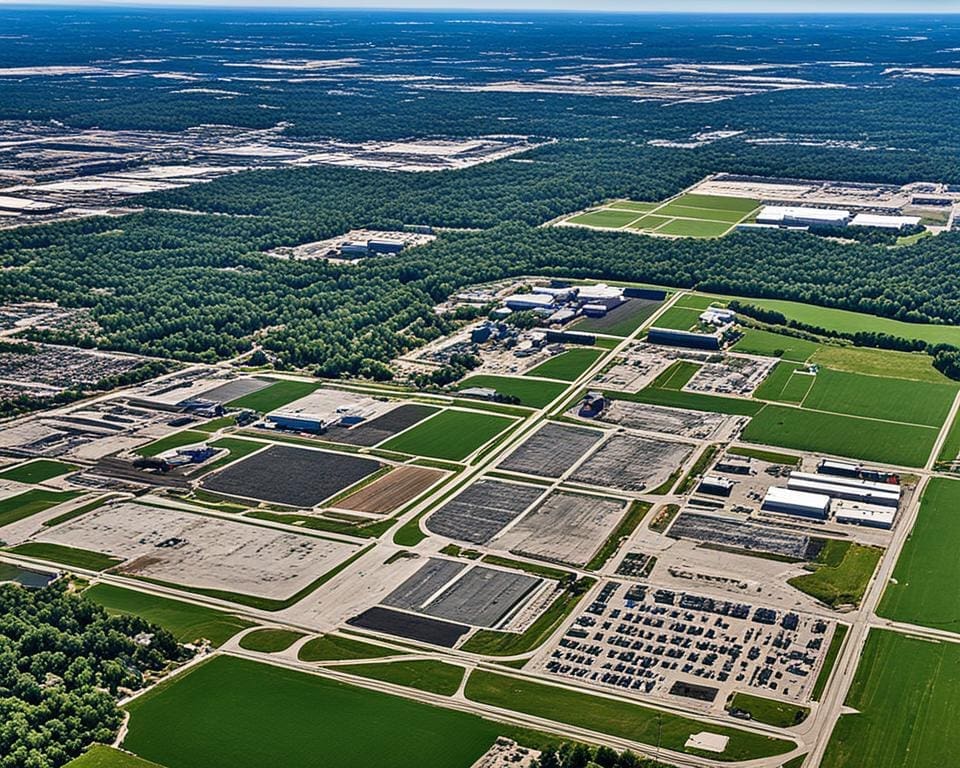Buying land is a special chance to own part of the earth. It can mean a lot personally and financially. Unlike other properties, it’s simpler to buy land. But, for newbies, it can seem tough.
It’s key to know why you’re buying land. Is it for building, farming, or just an investment? Knowing the different types of land is also important.
This guide is key in understanding what to check before you buy. Things like the place, permissions needed, and costs matter a lot. They include legal charges and possibly Stamp Duty Land Tax.
Using smart tips for buying land is a must for a good deal. Do your homework and talk to experts. This way, you can be sure about your land purchase.
Understanding the Types of Land Available
It’s important to know about the different types of land before buying. You should learn about Greenfield and Brownfield land. Each one has its own benefits and challenges that can affect your project’s success.
Greenfield vs Brownfield Land
Greenfield land is often in the countryside, untouched by development. It’s good for self-build projects. But, it might have higher planning hurdles and be far from needed services.
Brownfield land, on the other hand, has seen development before. It might be easier to get planning permission for it. However, it could have issues like existing buildings or pollution that need checking.
Land with Planning Permission
Getting land with planning permission already in place is a big plus. This land is usually worth more and lowers the risk of future issues. But, don’t ignore land without permission. With the right advice, it might still be good for development.

What to Know About Buying Land
Buying land isn’t just about picking a spot. You need to really think about why you want it and look closely at the market. Knowing how land prices change will help you make better choices.
Assessing Your Purpose for the Purchase
Before you decide anything, it’s critical to ask yourself why you’re buying the land. Do you want it for fun, as an investment, or to build something? Knowing your aim will guide your search and shape how you plan your finances. Being clear on your reasons will affect what kind of land you’re after and how fast you need to act.
Market Research and Understanding Value
Doing your homework on the land market is essential. Prices can vary a lot, from £5,000 to £15,000 per acre, depending on location and land quality. Knowing this helps a lot. The HM Land Registry is a great resource, giving you data on land sold since 1993.
Talking to local experts, like estate agents who know all about land, can give you extra insights. Websites such as Addland are also helpful, offering free advice on how much land might be worth and helping you find the right piece of land based on your needs. Think about why some places are more expensive and what it means for your investment.
Steps in the Land Acquisition Process
Starting your land acquisition journey means you must carefully search for the right plots. You should use various resources, including estate agents, local councils, and websites dedicated to listing land. It’s crucial to make sure what you’re looking for matches your goals. Consider the size, location, and what you plan to do with the land.
Finding Suitable Plots
It helps to network with people in the industry. They can tell you about plots that aren’t widely known yet. Most of your time will be spent checking the land and thinking over the possibilities. You will likely need to make several offers before finding the perfect spot.
Making a detailed checklist for buying land is very important. Include things like checking the environment, what the local laws are, and if the land is right for your plans. Doing this well improves your chances of getting the best plot. It also prepares you better for buying land in the future.








